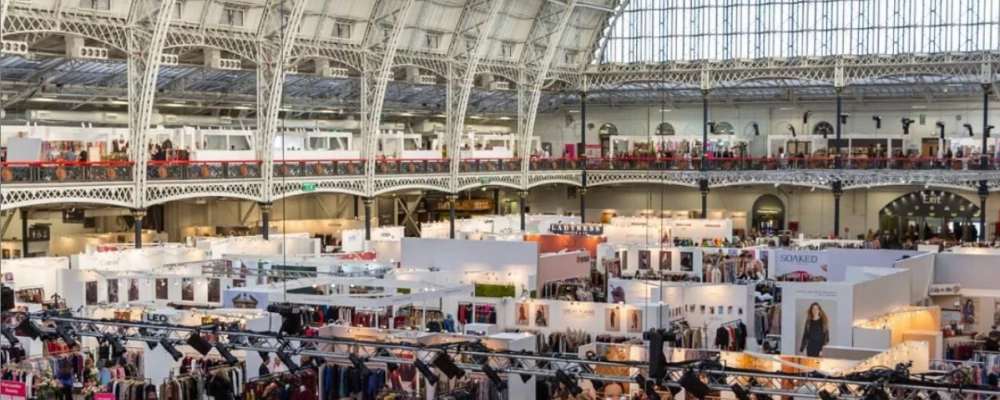
Eco Brands at Pure Origin Trade Show February 2020
This week, we visited the Pure Origin/Pure London trade show at London's Olympia (February 9-11th 2020) to tune in to emerging eco designers, brands and material innovations. Here's what we found.
Sunies jelly shoes use recyclable vegan materials for their conscious sandals. Their website doesn't fully explain the product, however for example with the coconut shoe, this uses coconut fibre to create natural speckling amidst their EVA rubbery outer.
Wat? Apparel is a printed t-shirt brand that only stood out to us because they use organic cotton and Oeko-Tex certified prints. There isn't much of a statement behind them, so we hope they build on that in future.
The Afterlife Projects brings together designers to co-ordinate brand strategies, PR and marketing, pop-up shops also with a research studio for all sorts of hand-crafts. Based in India.
Ocean Refresh create flip flops from recycled PET, collected through partnering with charity ROUTE who operate beach clean ups in Brazil. The bottom sole often contains natural cellulose fibres sourced locally in Brazil. The colours are all naturally produced too from plants.
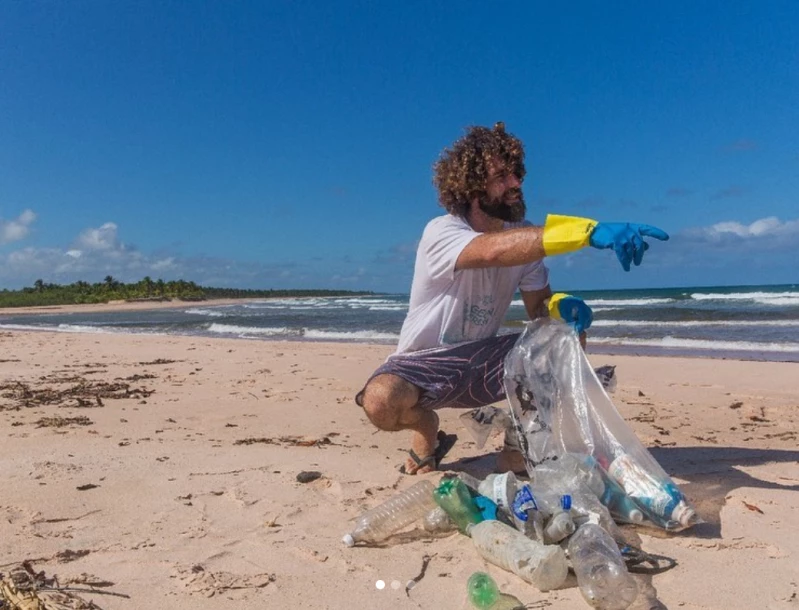
Sharewear Clothing Scheme are a community-led clothing donation scheme that works on referrals. We had a glorious chat to CEO and founder Louise about how and why she set up Sharewear, and we hope that she'll come on board for a webinar or video piece to dive into more detail. Due to the early stages of Coronavirus, a lot of international businesses couldn't come, and Sharewear were one of those exhibitors that could now attend - thankfully.
We didn't get chance to chat to Anstatt eco fur (and their site is in German), however it looks to be a synthetic alternative (though very realistic).
Solai use artisanal hand techniques and upcycling to create their unique products in their London studio. Their handloom fabrics are created in South India.
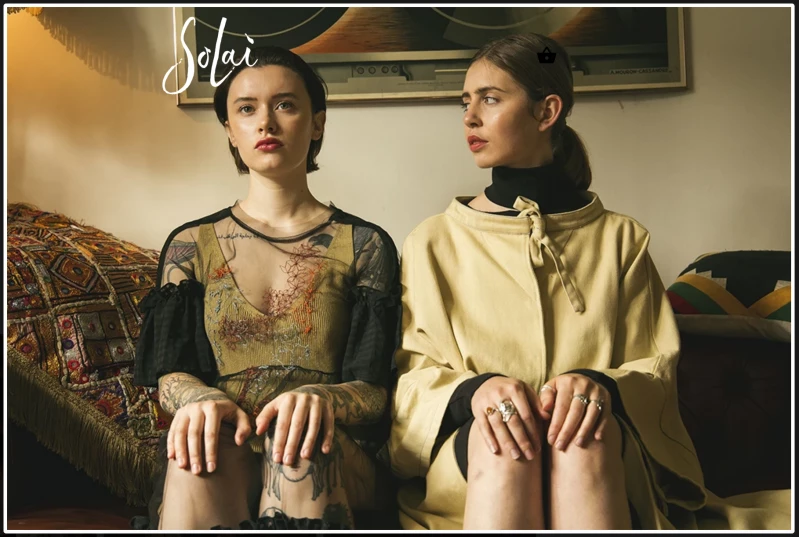
Clothing made from deadstock linen obtained from a Lithuanian factory, hand-made in London from Lemeul MC
Agrajain make handpainted raw denim pieces with a zero waste and bespoke mindset, using factory waste
Aqua and Rock unfortunately made us question why the stand was shouting out "sustainable" and it turned out because they're made in Britain and use some recycled material. Their website states, "Aqua & Rock is truly a sustainable clothing brand using the circular business model while supporting British manufacturing." However, we actually got in to a bit of discourse when discussing the raw material being a blend of cotton and recycled polyester. The response was that "this is what we have now", but a circular business model would be one that looks holistically to the future. Unfortunately there was also a question of my age when I mentioned that businesses could be bold and look ahead to make change, rather than resting on what is existing. This is one example where questioning really opens up a brand.
Komodo are one of the longest-reigning sustainable clothing brands, with their SS20 displaying organic linen and organic cotton in full form
I had a nice chat with Nago, a comfort-clothing brand that make within Europe using cosy materials. One thing that stood out to me was that they don't use bamboo, instead focussing on materials with a better impact such as Lenzing's EcoVero™ and organic cotton.
United Change Makers make organic denim jeans with an Indonesian factory. I spoke with Phil about the emergence and importance of hemp. On sustainability he says, “it’s like cooking, it makes the garments better”.
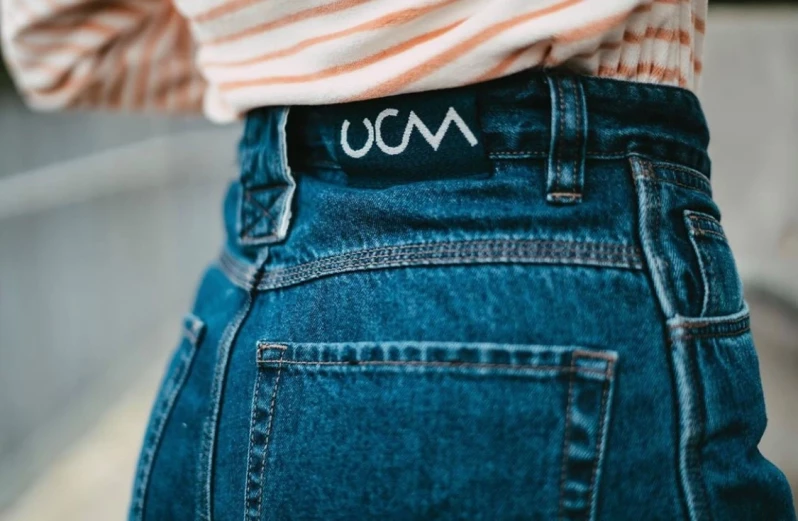
I chatted to Sarah from the marketing team at childrenswear label Frugi, who explained how she talks to children about the farm-to-field vision stemming from her experience growing up on a farm. Frugi create long-lasting children's clothing that actually has a great resale value showing how well designed and made they are to be passed on from child to child.
The London Growth Hub offers completely free resources and guidance to British businesses who need help understanding and preparing for Brexit.
Labo Mono caught our attention because of their brightly merchandised stand with just a few simple jackets and an iPad to showcase a film. It turns out that these jackets are produced from rPET, and made in an ethical factory in China. Designed in Hackney, London, it comes from a place where there wasn't a product that suited the urban cyclist.
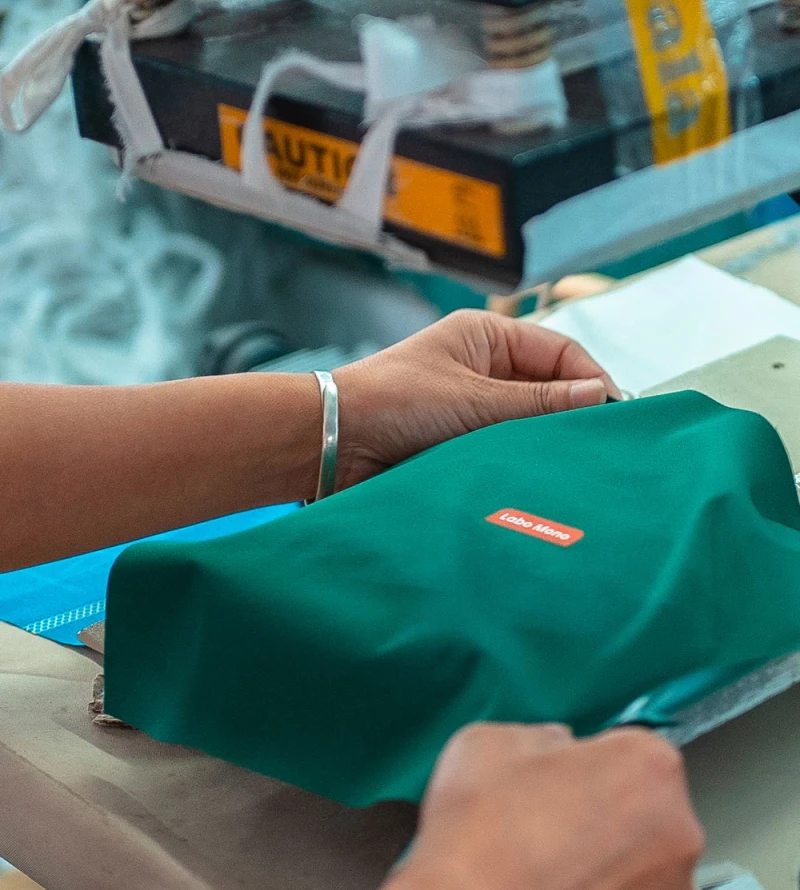
1618 again were a brightly coloured stand, full of streetwear. We weren't too sure if they were eco in any way but appreciated that the styles seemed to be personalised. Upon digging, there seems to be a little bit of either misunderstanding of the terms, or not thorough enough copy - this Serbian team state that they use cotton because it doesn't damage health and is the fibre of the wealthy being held in higher regard than wool and silk, and that they operate fair trade as no child labour is involved. If you are going to use these terms, please be clear on what they are and how they fit into your business model and values to avoid greenwashing.
Nette Rose weren't overly shouty as an ethical brand, but something about it made me look closer. The lingerie is produced in small runs in Africa, with lace fabric produced in house. They've got their messaging and tone right for their market.
K+1% are a period-proof lingerie brand but with really unusual cuts, so unlike the more modest and "basic" for want of a better word period-proof underwear brands on the market, this one stands out as still giving you the possibility of sensual body positivity - if that's what you want. The fabric is some sort of velvet, so they're not eco, but they do look fun and chunky enough to absorb. I don't reckon they're as suitable for heavy days like some other brands may be, but they've definitely got a niche market.

Activewear brand Aurum seems to have developed their own fabric for their clothing, a 2-ply that will sweat wick in one layer, and moisture evaporate in the other layer. Another activewear brand with their own niche.
Sustainable Ribbon provide 'circular economy' labels from both chemically recycled polyester, mechanically recycled polyester, Tencel, PLA, organic cotton and acetate - covering all bases for what material you could be using for the main fabric. They even have a section on their website to explain what the terms 'biodegradable' and 'compostable' really mean, with certifications to boot. However, I was only able to pick up a card and move on, and looking at their website they don't yet have products - but one to check up on for our sustainable trims matrix.
Ethical Nomads were tucked away upstairs amongst other manufacturers, another last minute programme addition due to coronovirus. The stand was full of dreamcatchers, driftwood and pleasingly neutral cosy sweatshirts along with handwritten signs on where to find their website - it was authentic, and it was that that made me stop. They are an independent studio that only produce with eco, sustainable and leftover fabrics, and who collaborate with certificated manufacturers to provide more sustainable garment manufacturing solutions.
Pure London is a funny one, as it has apparel mixed in with global manufacturers mixed in with some fabric suppliers mixed in with agencies - so it can be a case of wandering around rather than planning. I came across Truecolours Textiles is a Dutch brand who work with local communities in India to produce handwoven textiles such as naturally dyed denim and khadi shirting.
The Shirley® Textile Testing Lab is something we were happy to come across. It is rare to find knowledge on fabric testing, so we look forward to getting the Shirley team on board to learn more about such certifications as Oeko-Tex, REACH, microbiology, laundry trialling, toy testing and VOC emissions.
Kornit Digital are an Israeli digital printing company with distributors across the world, specialising in fabric printing and direct-to-garment printing using waterless technology, and water-based heavy metal-free inks.
Helen of the Studio Milena Design Studio weaves fabrics in North Yorkshire from discarded silk, organic fibres, vintage fabrics and recycled yarns. She then creates wall hangings, homewares and accessories.
And lastly, Faering digital print studio was spotted again, who specialise in digitally printing on merino wool and cashmere here in the UK, with renewable energy and allow low MOQ's. You can watch a lesson from founder Nick Morley in our Eco-Friendly Inks and Printing Masterclass.
